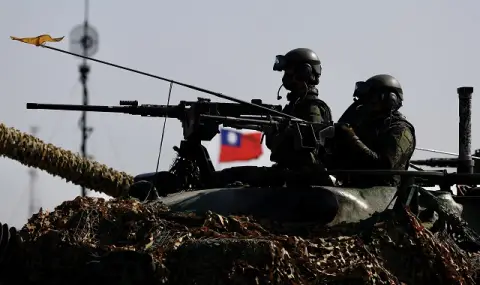Blocked government and parliament: Taiwan plunges into a political crisis similar to that in South Korea. There are historical lessons to be learned, writes Alexander Görlach.
Less than a month after the attempted coup in South Korea, neighboring Taiwan is also experiencing a constitutional crisis. What the two countries have in common is that political power is divided between two parties. In the democratic southern part of the Korean peninsula, there is a conservative president on one side and a liberal parliamentary majority on the other. In the island nation of Taiwan, the opposite is true: the president and government are from the liberal Democratic Progressive Party (DPP), while the parliament is dominated by the conservative nationalist Kuomintang (KMT).
In Taiwan, the crisis is due to nationalists who want to renegotiate the rules for filling the seven currently vacant seats for judges on the Constitutional Court. The government has announced seven nominations that the KMT refuses to accept, paralyzing the work of the court.
Taiwanese President Lai Ching-te is certainly not going to abuse this stalemate as a pretext to declare martial law - unlike the temporarily removed President of South Korea, Yun Suk-yeol, who did just that. But if Lai does not give up, Taiwan will face a crisis of governance or democracy, similar to the one in South Korea.
Kuomintang: Pro-Beijing Propaganda in Taiwan
With Donald Trump about to take office as US president, the threat from China - including war - and the dangerous situation in the Taiwan Strait and the West Philippine Sea, the country needs stable and good leadership. This is precisely what the KMT nationalists are deliberately thwarting, their critics say.
The KMT is traditionally close to Beijing and can imagine "unification" with mainland China. There are still nationalists who revere their "Generalissimo" Chiang Kai-shek. He was an opponent of Mao Zedong in the Chinese civil war, finally defeated him in 1949 and retreated to the island, where he established a regime of terror. Chiang has little in common with Mao - except for the idea that the island of Taiwan is part of China. Today, the KMT is the same party that supported Chiang's tyranny for almost four decades.
However, very few islanders today share the KMT's view that Taiwan's future lies in closer alignment with the People's Republic of China. Surveys show that the vast majority of residents feel Taiwanese. Therefore, the KMT must try to push its pro-Beijing agenda through tricks and gimmicks. At the same time, however, the liberal DPP is by no means universally popular. The party is criticized mainly by young voters and must prove that it is the leftist force it claims to be in the face of rising rents and the cost of living.
Taiwan and South Korea: Former Examples of Democracy
Here again, parallels with South Korea are visible. There, too, the history of conservatives is closely intertwined with military dictatorship. Both countries began to democratize in the late 1980s. In both countries, South Korea and Taiwan, the transition to democracy was underpinned by the continued participation of former oppressors. Both countries show that this cost initially allowed for a nonviolent democratic awakening.
Today, however, thirty-five years later, it is clear that the totalitarian actors who supposedly transformed themselves into democratic politicians are unwilling to give up their authoritarian legacy. They can torpedo and even reverse democratic projects. This development can currently be observed in two of the democracies in East Asia. This has potentially fatal consequences for the democratic world as a whole. Taiwan and South Korea were once seen as new role models - models so urgently needed in light of the ice age that has gripped Old and New World democracies.
